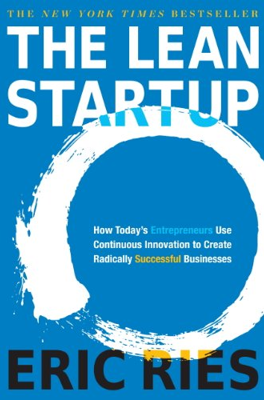Define
Who, Exactly, is an Entrepreneur?
Eric Ries expands the definition of "entrepreneur" beyond the traditional startup founder working in a garage. He includes individuals within large companies who innovate and create new ventures or products, termed "intrapreneurs." These managerial entrepreneurs share many traits like vision, risk-taking ability, and a knack for navigating corporate politics, similar to their startup counterparts. They often find themselves needing guidance on how to turn their ideas into successful innovations, which the Lean Startup methodology aims to provide. The method is relevant not only to small startups but also to entrepreneurs within large, established firms, addressing a broader audience comprising various business environments.
What’s a Startup?
The definition of a startup is clarified, emphasizing that it is an organization created to build new products or services under conditions of extreme uncertainty. This holds regardless of the company's size, sector, or the type of economy - whether the entity is a non-profit, government agency, or a venture-backed company. Key elements of a startup involve building an institution, often misunderstood as a fixed bureaucracy, and innovation, which is crucial even in non-technical fields. Startups, as defined, are bound by their need to innovate and operate amidst formidable uncertainty, distinguishing them from traditional businesses focused purely on execution.
The SnapTax Story
The tale of SnapTax by Intuit exemplifies how large companies can successfully execute innovative projects using Lean Startup principles. Initially challenged by the complexities of tax filing, the SnapTax team innovated by allowing customers to use their mobile phones to scan W-2 forms, simplifying the process. This project, indicative of entrepreneurial spirit within a corporate structure, showcases how Intuit's management encouraged a culture of innovation. By creating an "island of freedom," the team was allowed to experiment and develop a successful product, demonstrating that innovation can be managed effectively even within large companies.
A Seven-Thousand-Person Lean Startup
The transformation of Intuit into a large-scale Lean Startup underlines a significant shift in modern management practice. The company, originally successful with traditional management approaches, found that these were insufficient for ongoing innovation. By adopting Lean Startup methods, Intuit began to achieve rapid testing and learning through continuous experimentation, enabling faster innovation cycles. This shift involved substantial changes in management style, from directive leadership to one that facilitates entrepreneurial testing and experimentation among all employees.
This chapter illustrates how the principles of the Lean Startup are applicable and beneficial across a spectrum of business environments, from small garage-based startups to large multinational corporations. By fostering an internal culture of experimentation and learning, companies can continually innovate and stay competitive in rapidly changing markets.
